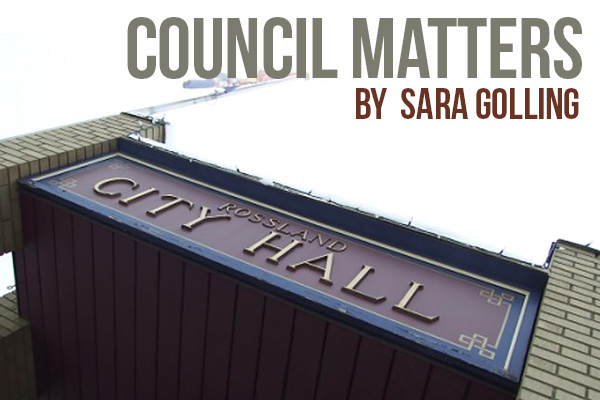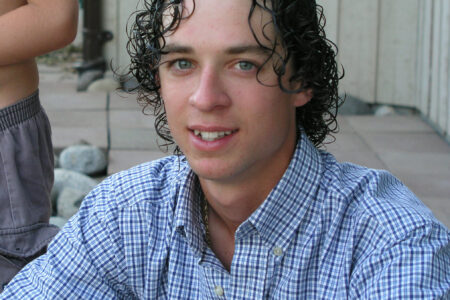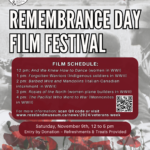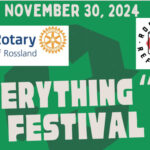Pickleball, a shake-up coming at the Regional District? Big investment for the hospital, and more
Rossland City Council held its scheduled regular meeting on Monday, April 10, 2017, at 6:00 pm. Mayor Kathy Moore and Councillors Lloyd McLellan, John Greene, Andy Morel, Marten Kruysse, and Aaron Cosbey were all present; only Andrew Zwicker was unable to attend.
Noisy vehicle problem:
A resident complained during Public Input Period about a noisy vehicle that is idled most mornings and makes as much noise as “a jet engine taking off.” He wondered if the City could enforce a bylaw against that level of noise. The relevant bylaw is Rossland’s “Good Neighbour Bylaw” #2430, and can be found by clicking this link. The relevant section is 4.5 (a): No person shall make or cause, or permit to be made or caused, any noise in or on a highway or other public place in the City which disturbs or tends to disturb the quiet, peace, rest, enjoyment, comfort or convenience of any person or persons in the neighbourhood or vicinity of that place.
Morel commented that he lives in the affected neighbourhood and that he can “feel” the noise as well as hear it; that the vehicle in question has an after-market exhaust system that seems designed to amplify, rather than muffle, the engine noise, and he agrees that it sounds like a jet engine revving up. Council discussed the difficulty of enforcement and sympathized with those in the affected neighbourhood. The resident thanked Chief Administrative Officer Bryan Teasdale for getting the driver of the vehicle to reduce the length of time he ran the noisy truck’s engine each morning to the three minutes permitted for idling, but said, “it shouldn’t be his job. We need some bylaw enforcement.”
Speeding complaints: Another resident who lives on Thompson Avenue thanked Council for reducing the in-town speed limit to 30 kilometres per hour, but complained that far too many vehicles still exceed that by a large margin. He noted that the worst offenders tend to be large trucks loaded with mountain bikes, and commuters trying to make up a minute or two of time. Moore said that Council will keep talking about speed, but noted that it’s very difficult to legislate good behaviour.
Delegations:
1. Pickleball! Robert Boyd presented to Council on the growing popularity of pickleball, in Rossland and all around North America. He described the game (affordable, easy to play, a strong drop-in culture, suitable for all ages, intergenerational), showed a number of news items devoted to pickleball, and urged Council to consider sites to establish dedicated pickleball courts in Rossland, and suggested part of the Emcon lot as an ideal location for outdoor courts. He noted that other communities in the area have dedicated pickleball courts; Grand Forks has four, Christina Lake has three, Castlegar has eight, Trail has four — but in Rossland, there is only one, up at Red. Boyd pointed out that more pickleball courts in a central, visible location would be an additional feature attracting visitors to Rossland.
2. LCIC and Metal Tech Alley: Terry Van Horn, Economic Development Officer for the Lower Columbia Initiatives Corporation(LCIC), and Bill Van Beek, Chair of the Lower Columbia Community Development Team Society (LCCDTS), were fired up about “forging Metal Tech Alley — Innovation in Metals and Technology.” A recent Rural Dividend Funds grant of $500,000 will support a marketing strategy to promote the affordable, serviced, flat industrial lands near Highway 22 and the initiatives already under way in the area, such as MIDAS, “i4C” and the Industrial Internet of Things (IIoT), and industrial recycling, with the goals of attracting new businesses and encouraging growth of existing business ventures. Other goals include attracting suitable investor(s) for Rossland’s Mid-Town Transition lands, inter alia.
3. Regional District of Kootenay Boundary: John Maclean, Chief Administrative Officer for RDKB, made himself available to answer questions about the RDKB’s 2017 to 2021 Financial Plan. He said the RDKB had an organizational governance review done last year that produced a number of recommendations, and “we’re working on a plan to implement the ones that we can, the ones that we can afford. [–] The next big step will be a board training opportunity, to be held in May.”
Maclean remarked on the difficulty, or impossibility, of strategic planning for the RDBK. Moore commented on the difficulty of reducing the time demands on directors when agenda packages run to 800 pages; Maclean advised that directors must be selective about their reading, and skip material on items not directly related to their community; he suggested that reading other material could be motivated by “nosiness.” Moore responded that directors are required to vote on many items not directly related to their own communities and they have a duty to be properly informed about anything they vote on.
Maclean noted that there will be a discussion about holding two RDKB board meetings a month, instead of one, which would reduce the size of the agenda package for each. Your reporter’s question is, would it also double the expense for directors’ per-meeting stipends and travel expense allowance?
Directors currently receive an $83 stipend for each meeting attended, in addition to their monthly stipend of $750 each, plus a monthly tech allowance of $200 each, and there are 13 directors listed on the RDKB website. Meetings move around the district, and each director is allowed to claim travel at 52 cents per kilometre (in addition to a flat monthly travel allowance of $50). Stipends alone for each monthly meeting amount to $1,079. A year’s worth of meeting stipends alone at one meeting per month amounts to $12,948, without counting the travel allowances and meals.
Moore wondered “why our presentation about the Fire Service, which was presented in September, has never been discussed by the board.” Maclean responded, “Because, we were working on a different issue that’s in camera.” Moore continued, “I want to see action on that, and on the governance report. I want to see some changes coming out of both of those things.” Maclean said that the in camera topic is “large; and, in my view, it’s large enough that it needs to be addressed before we start talking about anything else, because it’s going to shake everything up, one way or the other. [–] It’s going to impact our ability to address the things that you did raise.”
Unfinished Business:
Council unanimously passed a motion to provide $1000 to the Regional District to help fund a regional Canada 150 celebration.
Another Grant Application:
Council unanimously passed a motion directing staff to submit an application under Columbia Basin Trust’s Built Heritage Grants Program, for the Rossland Seniors’ Centre Façade Restoration Project, in the amount of $84,000.
A Development Variance Permit:
Council unanimously passed a motion to allow a variance for 2740 Butte Street, to build a carport with the same setback (ie, none) as the existing house, and a driveway accessible from Butte Street, with Statutory Right of Way dedication from the owner for snow storage.
Short Term Rentals:
After asking and discussing questions about parking, payment of fees and taxes, and the number of rental units permitted in a given area, Council unanimously passed a motion directing staff to proceed with drafting the various bylaw amendments necessary to implement the set of recommendations from the Short Term Rental Advisory committee. Those will include changes to the OCP, the zoning bylaw, and possibly the business license bylaw. Council has asked that the changes be ready by this fall.
Financial Plan:
After extensive discussion, and thanking Manager of Finance Elma Hamming for her work, Council unanimously passed a motion to give first reading to bylaw #2629, Rossland’s Financial Plan for 2017 to 2012.
Another motion to give first reading to 2017 Municipal Tax Rate Bylaw, #2630, also passed unanimously.
Council had directed staff to keep any increase in the City’s portion of homeowners’ taxes to 5% or less; for the coming year it will be 4.75%. Council had also mandated a reduction in operating expenses of $250,000, and staff achieved that.
Disc Golf Request:
Council discussed a letter from the Kootenay Rockies Disc Golf Society requesting that the City provide a once-yearly mowing of the Thin Air Disc Golf course out at Black Jack. Morel moved that the request be denied, as he had heard that Black Jack has acquired a mower that could be used for the purpose. Albo commented that the City has mowed the course in the past, but has been paid to do it. In discussion, Councillors noted that the course is not in Rossland but in Area B of the Regional District, and voted unanimously to deny the request.
Over $18 Million to upgrade the Kootenay Boundary Regional Hospital
Construction is slated to begin on a new emergency ward at KBRH, starting next summer — 2018, with a goal of completion (or at least occupancy) in 2020. The government’s news release says,” the emergency department expansion will address immediate space and service challenges and accommodate projected patient care needs for years to come. Plans include a single-storey addition to the existing building that is anticipated to triple the size of the current emergency department. As well, there will be:
• Two trauma bays,
• Seven redeveloped urgent care treatment bays,
• Five fast-track examination spaces,
• One redeveloped airborne isolation room,
• One redeveloped decontamination room,
• One new procedure/gynaecology room,
• One new secure room,
• One new quiet/consult room,
• Renovated minor procedure room and triage area,
• A covered ambulance area, and
• New electrical system.”
The meeting recessed to an in camera session, pursuant to sections 90(1)(g), litigation or potential litigation affection the municipality, and(k), negotiations and related discussion respecting the proposed provision of a municipal service, of the Community Charter.
And your somewhat gimpy reporter hobbled home in the dark and damp night, contemplating the heavy workload of regional district directors, and the associated heavy financial burden on taxpayers by way of regional district requisitions, and whether there might be ways to lighten that burden. Would it be better to divide the district into two (or more) separate sections, to reduce the burden of preparation and the cost of travel? Our mayor has suggested that it should be considered. And who knows when we might learn the outcome of the RD board’s deliberations on that large in camera topic that will “shake everything up”? Let’s not hold our breath just yet.

























